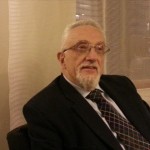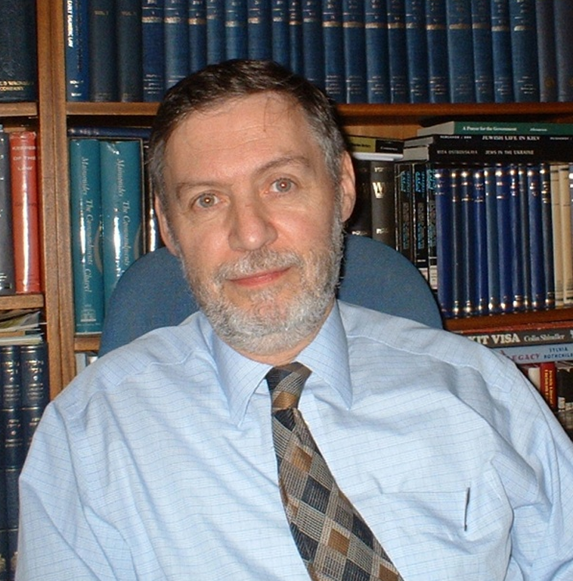The Church of Scotland has embarked upon an anti-Israel campaign that has strong antisemitic currents. This interview by Dr.Gerstenfeld hasn’t been published anywhere else presently.
A Harsh Document for Jews and Israel from the Church of Scotland
Manfred Gerstenfeld interviews Kenneth Collins
 “A document proposed to the General Assembly of the Church of Scotland aims to discredit Judaism from a theological standpoint. It is entitled ‘The Inheritance of Abraham? A report on the Promised Land.’ It has been written by the Church and Society Council of this religious movement. It proposes that the Jews’ claim to the Land of Israel could be invalidated by their treatment of the Palestinians. It also suggests that the Church should consider boycotts and sanctions against Israel
“A document proposed to the General Assembly of the Church of Scotland aims to discredit Judaism from a theological standpoint. It is entitled ‘The Inheritance of Abraham? A report on the Promised Land.’ It has been written by the Church and Society Council of this religious movement. It proposes that the Jews’ claim to the Land of Israel could be invalidated by their treatment of the Palestinians. It also suggests that the Church should consider boycotts and sanctions against Israel
“This new report has been produced with the co-operation and support of the World Mission Council, as the ‘latest reflection on the ‘questions that need to be faced’, as the political and humanitarian situation in the Holy Land continues to be a source of pain and concern for us all.”
Dr. Kenneth Collins is a former President of the Glasgow Jewish Representative Council and Chairman of the Scottish Council of Jewish Communities. He is currently Visiting Professor at the Hebrew University of Jerusalem.
Collins remarks: “The Church of Scotland is the largest and most significant religious body in Scotland since the Protestant Reformation Movement more than four centuries ago. It has about one million active members, but many more recognize its authority and its role in the national life of the country.”
“This document is a radical departure from the 2003 one titled ‘Theology of Land and Covenant.’ It noted that, ‘As Christians we must be sensitive and accept that we have no right to dictate to Jews how they ought to respond to their traditions; whether, for example, they should be Zionists or non-Zionists, religious or secular.’
“In the 1980’s, the Church approached then-Chief Rabbi Immanuel Jakobovits to help set up a dialogue with the Jewish Community. It lasted for many years, discussing issues such as the religious family and faith education, as well as theological subjects such as the parting of ways between Jews and Christians in the first centuries of the Common Era. There was always mutual understanding, even where there could not be agreement.
“One hesitates to use the term anti-Semitism in contemporary Scotland. The Jewish community enjoys a high level of acceptance and plays a positive role in civic society. Yet this document, from a theological point of view, is extremely anti-Jewish. It also transgresses all common courtesies of interfaith relations and thus can be considered to have anti-Semitic components.
“Several developments have made this document possible. One is a deepening of relations between the Church and Palestinian Christians. The Church is influenced by aggressive anti-Israel Christians such as the Sabeel movement, the signatories of the Kairos document, and the leaders of the Church of Scotland in Jerusalem.
“A second factor is the structure of the Church of Scotland. Its leading figure, the moderator of the General Assembly serves for one year only. As a result, the church’s effective leadership is vested in its civil service. With recent personnel changes at its head office and in key committees, church members who were involved in interfaith dialogue with Jews have been replaced over the past few years. New members may even be unaware of the church’s previous relationship with the Jewish community built up over decades. Since for many years Church ministers are not required to learn biblical Hebrew, a majority has no ability to read the original Bible text.
“The Church of Scotland has a number of institutions – churches, hostels, a school and a luxury hotel in Israel. These mainly serve the indigenous Arab community. Arab Christians have been invited to speak at the upcoming General Assembly and there is no forum for Jewish participation.
“The reaction from the Jewish side was harsh. Ephraim Borowski, Director of the Scottish Council of Jewish Communities published a statement calling the proposed document, ‘An outrage to everything that interfaith dialogue stands for. It reads like an Inquisition-era polemic against Jews and Judaism. It is biased, weak on sources, and contradictory. The picture it paints of both Judaism and Israel is barely even a caricature. The arrogance of telling the Jewish people how to interpret Jewish texts and Jewish theology is breathtaking. It is hardly surprising that the Church has this year departed from its long-standing practice of engaging in dialogue with the Jewish community, because it claims to know Judaism better than we do.”
“The Board of Deputies of Great Britain, the Jewish umbrella organization in the United Kingdom reacted by saying about the document, ‘It is littered with misrepresentations of Jewish history, values and beliefs, as well as basic factual errors. It is an ignorant and tendentious document masquerading as a theological statement.’ The London Times carried the story on its front page in Scotland calling it a slap in the face for the Jewish community.’ The sub-heading was ‘Anger as report questions Israel’s right to exist.’
“As the Jewish response in Scotland concludes ‘If the Church cannot build bridges, can it at least refrain from burning them?’”

